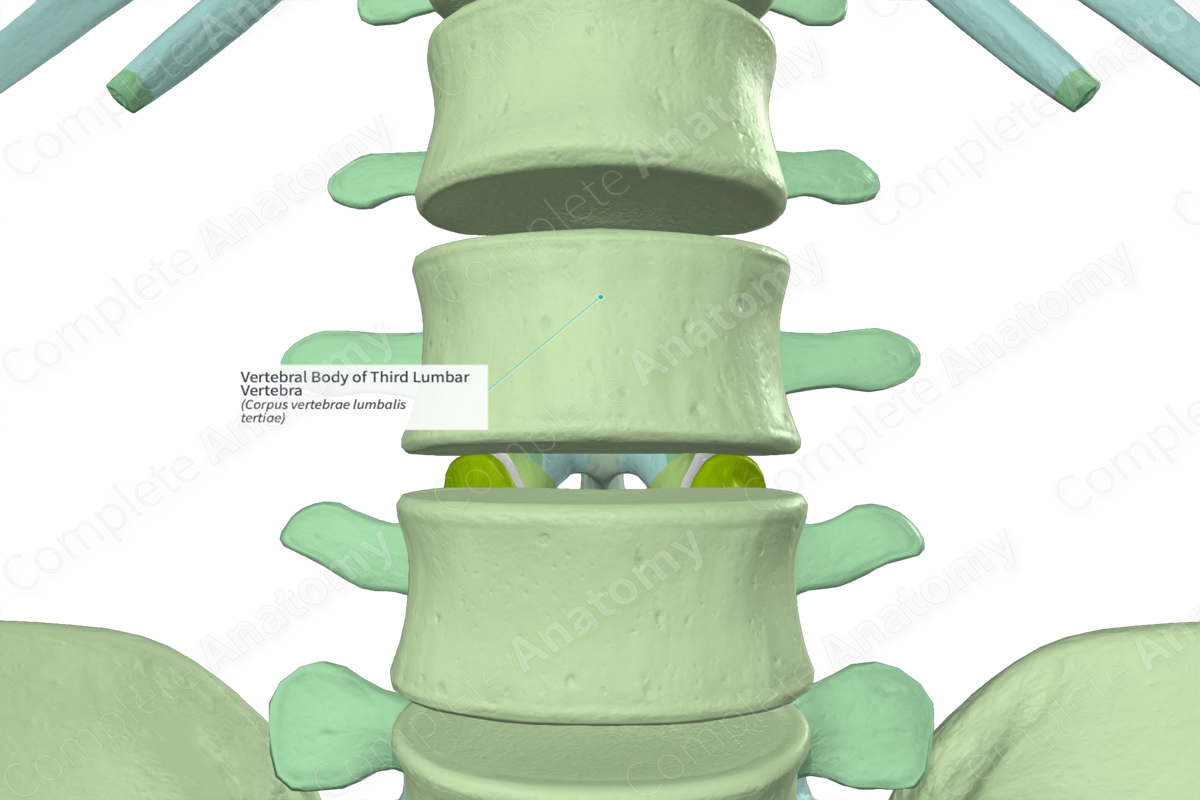
Description
The vertebral body is the anteriorly located cylindrical part of a lumbar vertebra. When viewed from above, it appears kidney-shaped. Its anterior aspect is concave, while its posterior aspect, which forms the anterior wall of the vertebral foramen, is flat. It is connected to the vertebral arch via two pedicles, which extend from the upper corners of its posterior aspect. It consists of:
—superior and inferior intervertebral surfaces;
—superior and inferior annular epiphyses;
—vascular foramina.
The vertebral body of the third lumbar vertebra provides origin sites for the respiratory diaphragm and psoas major muscles, as well as attachment sites for the anterior and posterior longitudinal ligaments.
Overall, the sizes of the vertebral bodies gradually increase caudally along the vertebral column. Adjacent vertebral bodies articulate with each other via intervertebral discs, forming the intervertebral symphysis joints.
In terms of function, each vertebral body provides structural support to the body weight that lies superior to it.
